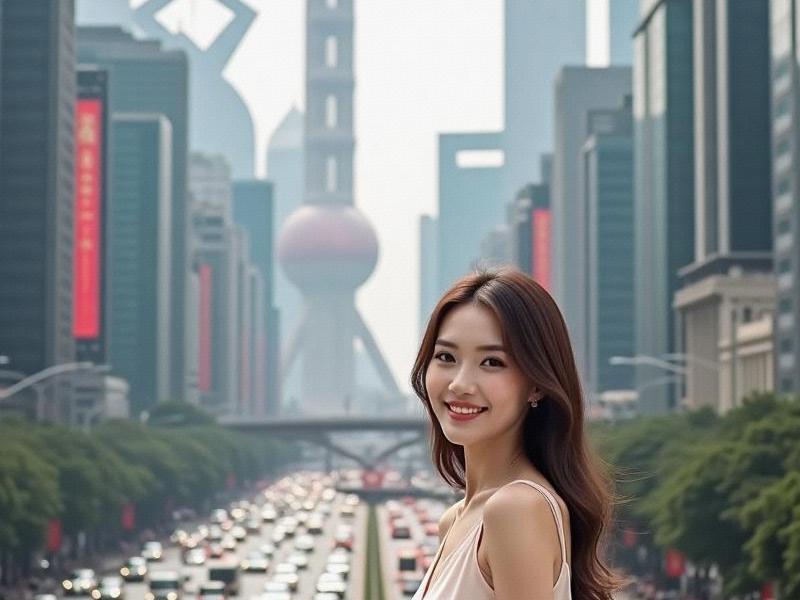An investigative feature exploring how Shanghai women have crafted a unique feminine identity that blends Eastern tradition with Western modernity, creating a new standard of urban femininity in China.

The Shanghai woman is an enigma wrapped in a cheongsam and powered by a smartphone. From the tree-lined avenues of the French Concession to the neon-lit towers of Lujiazui, these women move through the city with an unmistakable aura - at once fiercely modern and deeply traditional.
Our exploration begins at 6:30 AM in a Jing'an high-rise, where 28-year-old investment banker Li Yuxi prepares for her day. Her morning ritual encapsulates the Shanghai feminine paradox: applying La Mer skincare while reviewing Bloomberg market data, steaming a vintage cheongsam between video calls with London clients. "My grandmother taught me that true elegance is being prepared for any situation," Li says, adjusting the heirloom jade bracelet that never leaves her wrist.
Statistical analysis reveals the Shanghai woman's unique profile:
• 72% hold university degrees (national average: 58%)
• 63% occupy managerial positions (national average: 41%)
• Average monthly beauty spending: ¥2,800 ($400)
• 57% practice traditional arts (calligraphy, tea ceremony)
• Shanghai's female-led startups secure 27% more funding than male-led ones
爱上海论坛
Fashion historian Dr. Emma Wang identifies five pillars of the Shanghai feminine mystique:
1. "Qi Zhi" (气质) - An ineffable aura of cultured grace
2. Financial sophistication rivaling Wall Street analysts
3. Fluency in discussing both Tang poetry and blockchain
4. Mastery of "Sajiao" (撒娇) - The strategic art of feminine charm
5. The ability to pair designer heels with breakfast street food
The education system fuels this unique synthesis. At top-tier Fudan University, the new "East-West Studies" program combines business administration with classical Chinese arts. Elite international schools teach Shanghainese dialect alongside coding languages. The result is a generation equally comfortable analyzing stock charts and composing classical poetry.
上海龙凤sh419
Economic empowerment has transformed social dynamics:
• 82% of women prioritize career over marriage before age 30
• Average marriage age: 32.5 (national average: 28.8)
• 68% of matchmaking clients seek "intellectual compatibility" over financial security
• Divorce rate: 39% (70% initiated by women)
Yet tradition persists in sophisticated ways. The same women debating AI ethics in boardrooms by day often prepare intricate Jiangnan cuisine by night. High-powered executives consult feng shui masters before signing deals. And that iconic Shanghai "xiaozi qingdiao" (小资情调) - the bourgeois-bohemian aesthetic - remains a carefully curated lifestyle.
上海夜生活论坛 The global beauty industry has taken notice:
• Estée Lauder's Shanghai R&D center develops products exclusively for the "Shanghai skin profile"
• Chanel creates cheongsam-inspired collections for the Shanghai market
• Plastic surgeons report 42% increase in "natural refinement" procedures
• The city's ¥28 billion ($4 billion) beauty market grows at 19% annually
As night falls over the Bund, the Shanghai woman transforms seamlessly from corporate warrior to cultural connoisseur. In hidden jazz bars, venture capitalists debate Song Dynasty ceramics. At Michelin-starred restaurants, tech founders explain Shanghainese soup dumplings to foreign investors. This is the Shanghai feminine ideal - not a compromise between East and West, but a dazzling new paradigm.
The world is watching. Harvard studies the "Shanghai Leadership Model." Vogue International dedicates annual issues to "The Shanghai Aesthetic." As globalization homogenizes beauty standards, Shanghai women offer something radical - a vision of modern femininity that celebrates cultural roots.
Perhaps fashion designer Zhang Mei best captures the essence: "We carry jade for wisdom, wear Dior for confidence, and check our stock portfolios for fun. That's the Shanghai woman's holy trinity."